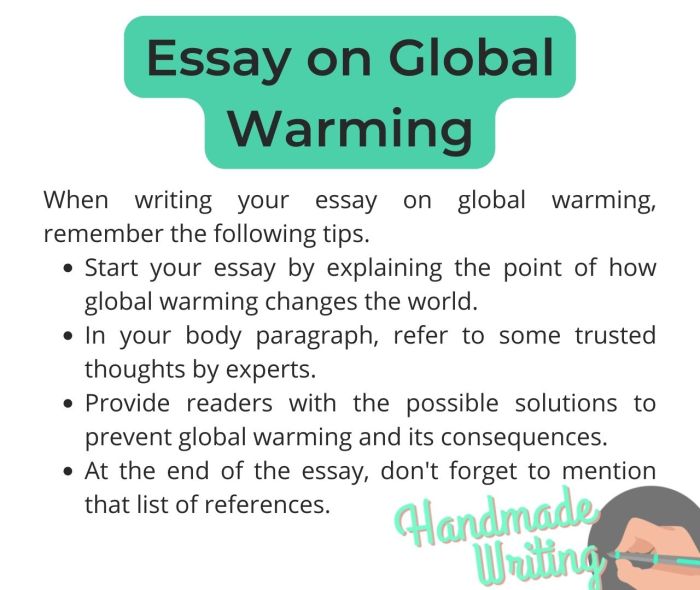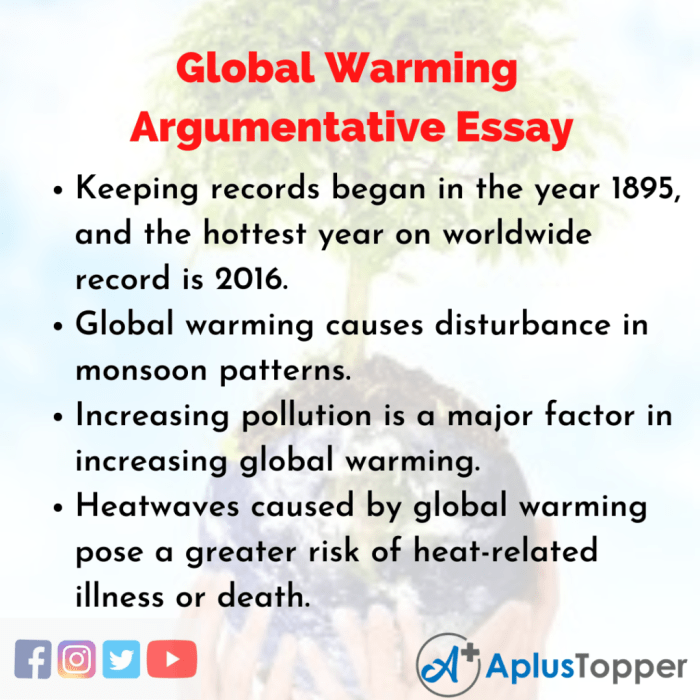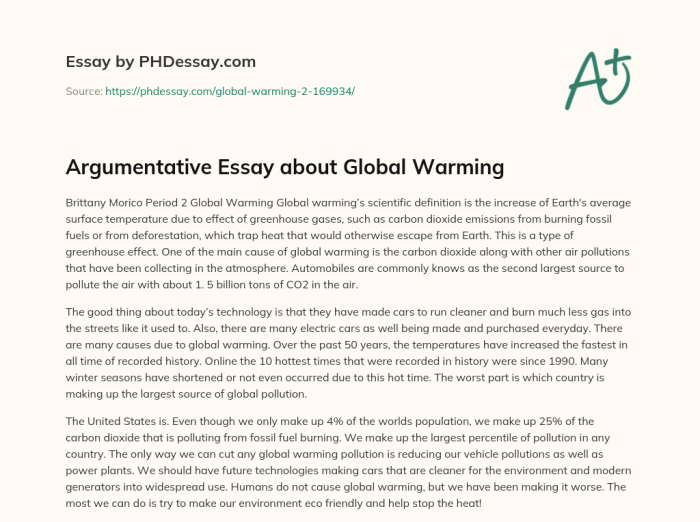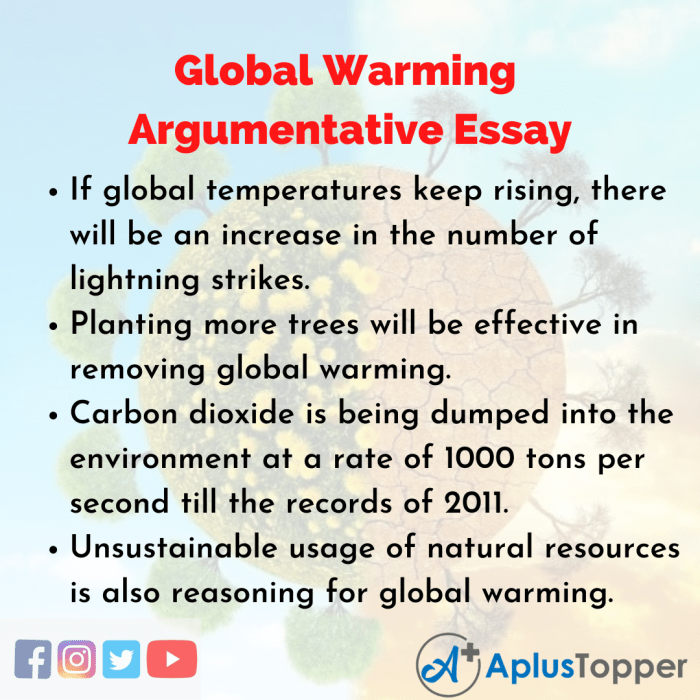An argumentative essay about global warming delves into the complexities of this pressing issue, examining the scientific evidence, its far-reaching impacts, and the urgent need for mitigation and adaptation strategies.
Global warming, a phenomenon resulting from the increased concentration of greenhouse gases in the Earth’s atmosphere, poses significant challenges to our planet and its inhabitants. Understanding its causes and consequences is crucial for devising effective solutions to address this global crisis.
Global Warming

Global warming refers to the long-term increase in the Earth’s average surface temperature, primarily due to the accumulation of greenhouse gases in the atmosphere. Understanding global warming is crucial as it has profound implications for the environment, human society, and future generations.
The scientific evidence supporting global warming is overwhelming. The primary cause is human activities, particularly the burning of fossil fuels, which releases carbon dioxide and other greenhouse gases into the atmosphere. These gases trap heat, leading to a gradual rise in global temperatures.
Scientific Evidence
Numerous studies have documented the rise in global temperatures, changes in precipitation patterns, melting of glaciers, and sea-level rise. These observed changes are consistent with the predictions of climate models and provide compelling evidence for the reality of global warming.
Impacts of Global Warming, Argumentative essay about global warming
The impacts of global warming are far-reaching. Rising temperatures threaten human health, agriculture, and biodiversity. Extreme weather events, such as hurricanes and heat waves, are becoming more frequent and intense.
Coastal communities are at risk from sea-level rise, which can lead to flooding, erosion, and salinization of freshwater sources. Changes in precipitation patterns can disrupt agriculture, leading to food shortages and economic losses.
Mitigation and Adaptation
Addressing global warming requires both mitigation and adaptation strategies. Mitigation involves reducing greenhouse gas emissions by transitioning to renewable energy sources, improving energy efficiency, and promoting sustainable practices.
Adaptation measures are necessary to cope with the effects of climate change that are already occurring. These include building seawalls to protect coastal areas, developing drought-resistant crops, and implementing early warning systems for extreme weather events.
Policy and Public Engagement
Government policies play a vital role in addressing global warming. By implementing carbon pricing, promoting renewable energy, and investing in climate research, governments can create incentives for reducing emissions and fostering innovation.
Public engagement and education are essential for raising awareness and promoting action on climate change. By providing accurate information and empowering individuals to make informed choices, we can create a more sustainable future.
Ethical Considerations
Global warming raises important ethical considerations. Individuals, corporations, and governments have a responsibility to act in a way that minimizes their contribution to the problem and promotes the well-being of future generations.
Ethical decision-making in the context of global warming involves balancing the need for economic growth and development with the protection of the environment and the rights of future generations.
Query Resolution: Argumentative Essay About Global Warming
What is the primary cause of global warming?
The primary cause of global warming is the release of greenhouse gases, such as carbon dioxide and methane, into the atmosphere, primarily due to human activities like burning fossil fuels.
What are the potential impacts of global warming?
Global warming can lead to rising sea levels, extreme weather events, disruptions to agriculture and ecosystems, and threats to human health and well-being.
What are the most effective mitigation strategies for global warming?
Effective mitigation strategies include reducing greenhouse gas emissions by transitioning to renewable energy sources, promoting energy efficiency, and implementing sustainable land-use practices.


